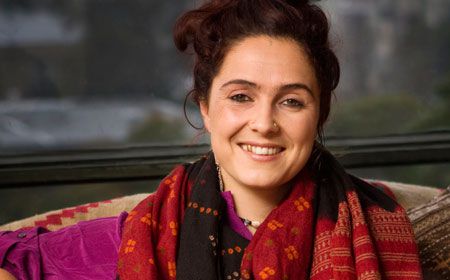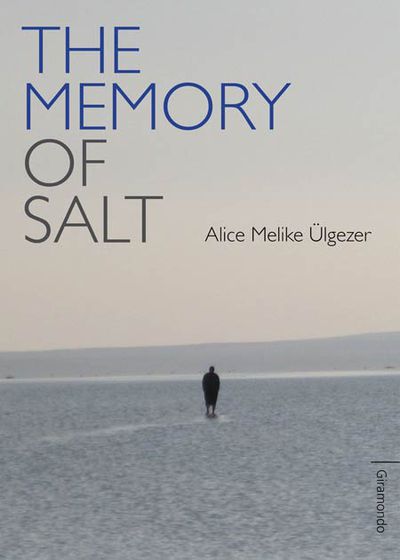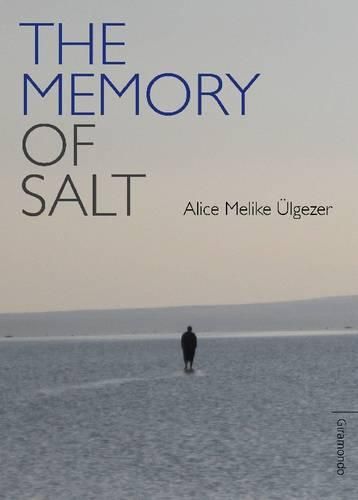Q&A with Alice Melike Ülgezer, author of The Memory of Salt
Alice Melike Ülgezer chats with Will Heyward about her novel,

The Memory of Salt
One thing I must say first of all is that the gender of Ali is never disclosed in the novel. This was very deliberate and is important to me as a writer. There are some instances where the gender is hinted at, for example on page 279, when Baba says that he hopes one day Ali will lead him in prayer. Traditionally women do not lead men or their fathers in prayer. There is also another instance where Ali and a gypsy girl flirt on a bridge in Istanbul together.
For me as a writer it was very important to maintain this ambiguity and play with it here and there, as in the shop-top scene between Zeki and Ali. The reasons for this gender ambiguity are personal. I drew from my own experience of having a father who, in either a Turkish or Australian cultural context, didn’t treat me like a daughter but more like a son or a mate. The process of writing Ali with ambiguous gender was very intuitive and it wasn’t until very recently, in fact after I had finished writing, that I realised why it made such sense to me.
Your writing engages directly with mysticism and a certain kind of spirituality, which is often embodied by Ali’s father, ‘Baba’. How is this way of thinking and being important to you?
A dear friend told me an old story the other day – it goes like this: there were a group of Mevlevi dervishes and they were doing sema (the whirling ritual). Suddenly there was a loud knock at the door and a voice shouted, ‘Brothers! It’s time to pray!’. After a time they called back, ‘We are praying’.It is this kind of personal, unmediated and un-institutionalised relationship with Source that is important to me. I feel that when religion becomes institutionalised it can betray its origins and become muddied by the clay and fear of politics. Prayer isn’t something to do once a week or five times a day, it’s a way of being in the world, a way of living.
A lot of what happens takes place in parts of the world – Turkey and Afghanistan, for example – that might seem ‘exotic’ to Australian readers. How do you describe the mystery of these places without making them seem too otherworldly?
After having spent over fifteen years going back and forth between here and Turkey, my perception has of course altered and shifted. It was very important to me in writing this book to describe Turkey as I experienced it from the inside, replete with all the droll and foibled stuff of any people. I did not want to represent it as a something that would reinforce notions of the mysterious, exotic other. I feel these sort of exoticised representations of cultures and places only create a false sense of divide and separation between people.
As for Afghanistan, well that is different. I haven’t experienced that country myself. Rather I was brought up with stories about it – stories from memories that, over the years, have shifted, changed and transformed, and become discrete experiences in themselves. So when I wrote the early scenes in Afghanistan, I was drawing upon these narratives and fleshing them out with my own experiences and what I have heard from Afghanis.
As to the how of describing these places, I suppose the fact that there are characters in the novel who are originally from these places, others who travelled to them,and others still who form some sort of residual diaspora makes for a multi-faceted and varied representation.
As the title of the book suggests, much of the story is relayed via memory. Your narration is very concerned with visceral experience – taste, sight and sound – and particularly with music. What’s the connection between these two things?
I have always written, but from a young age I was also trained as a musician. For many years I wrote and played equally. But then at one point I turned away from music altogether. Yet, the experience of it, its breath and textures, the way my ear was tuned to the world, saturated me. Music is physiological, an embodied experience. The playing of it, the listening to it, the creation of it. Having turned from music, I focused more and more on writing. So I guess in a sense there is a musician in me who chose a pen instead.
As for the relationship between memory and music, music is a way of reciting, re-visioning and remembering as much as the language of words is. From a young age I listened to music with lyrics that were not in English. I remember singing along to Turkish songs not even realising that I didn’t ‘understand’ the lyrics. Because in fact I did understand, it was a feeling experience. My musical diet hasn’t changed, it has only grown richer and I still do this. For me, music was learnt along with language. The two are inseparable.
In the novel you often employ different languages – Turkish and German, for example – alongside English. How much can we learn from reading these words in Anglophone novels, and what does it mean to you to draw upon them?
The decision to use languages other than English was, for me, being true to the experiences I have drawn upon. I thought it important for the reader to be close to Mac and Ali’s experience of not always understanding everything that is being communicated. In the novel Ali speaks shreds of German and Turkish. Enough to get by. Ali’s lack of comprehension doesn’t stop some characters speaking at length in Turkish or German. Similarly with Mac’s experience. If there is a feeling of being outside the text or not understanding it, then good. This is the experience of Ali, Mac and some of the Turkish characters also. I feel the cadences of these other languages bring texture and depth to the novel. Sometimes we don’t understand everything we hear and the world is made up of many tongues.
The Memory of Salt




